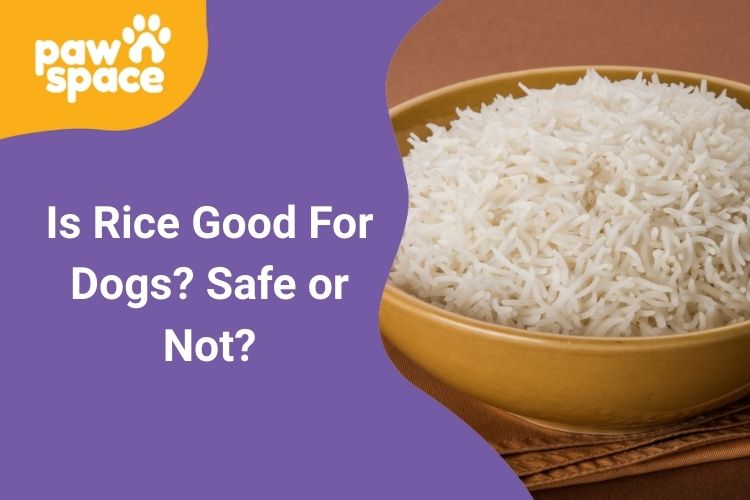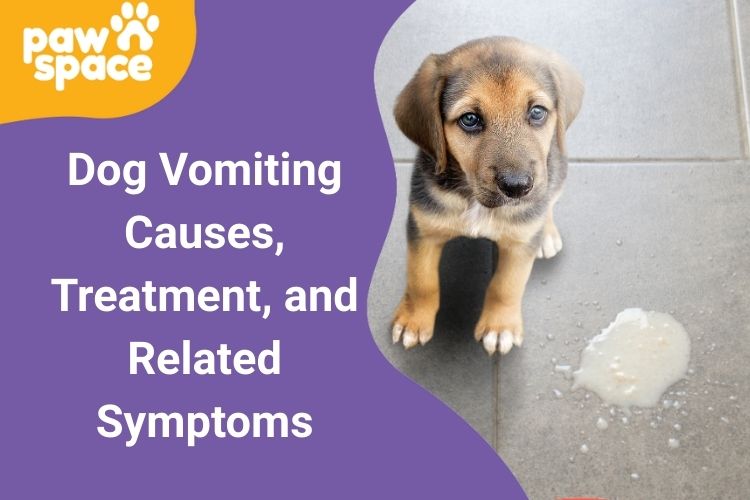Table of Contents
Toggle- Why Rice Might Be a Great Option and Why PawSpace Is Your Go-To Destination for Pet Nutrition Guidance
- Is Rice Healthy for Dogs?
- Rice has a number of nutritional benefits:
- White Rice vs. Brown Rice: Which Is Better?
- White Rice
- Brown Rice
- How to Prepare Rice for Dogs
- Safe cooking precautions:
- When Is Rice Not Safe for Dogs?
- 1. Overfeeding
- 2. Diabetic Dogs
- 3. Allergies
- 4. Poor Preparation
- How Much Rice Can Dogs Eat?
- Can Puppies and Elderly Dogs Have Rice?
- Alternatives to Rice
- Why Choose PawSpace for Pet Nutrition Support?
- Here is why PawSpace stands out:
- Conclusion
- FAQs
- Can dogs consume rice daily?
- Is rice suitable for dogs with diarrhea?
- Can dogs eat fried rice?
- Is brown rice better than white rice for dogs?
- Can dogs have rice allergies?
Why Rice Might Be a Great Option and Why PawSpace Is Your Go-To Destination for Pet Nutrition Guidance
Rice is one of the world’s most widely consumed grains, and it probably sits in your pantry waiting to be a part of your meal. But when you sit down to dine and your dog looks up at you with puppy dog eyes, you can’t help but wonder: Can dogs eat rice? Is rice good for dogs? The short answer is yes. Rice can be safely and healthily added to your dog’s diet in the right way. As with any food, however, there are conditions.
Today we are going to talk about the nutritional content of rice, when and how to feed it to your dog to make healthy, well-informed choices.

Is Rice Healthy for Dogs?
Rice is ordinarily healthy for dogs. Rice is a source of quickly absorbed carbohydrates and is also commonly recommended by veterinarians for dogs who have irritable stomachs. White rice, in fact, is a common ingredient in bland diets that are used to treat diarrhea or stomach ailments.
Rice has a number of nutritional benefits:
- Carbohydrates for energy
- Vitamin B6 for brain activity
- Magnesium and phosphorus for bone formation
- Iron for oxygen transport
- Potassium for muscular function
White rice is gluten-free and hypoallergenic for most canines, making it a better choice than utilising grains like wheat or corn.
White Rice vs. Brown Rice: Which Is Better?
White rice and brown rice can both be given to dogs, but they serve different purposes.
White Rice
- Easier to digest
- Less fiber
- Better for dogs with sensitive stomachs
- Higher glycemic index, which raises blood sugar
Brown Rice
- Higher in fiber and nutrients
- Has bran layer, which contains antioxidants and B vitamins
- More difficult to digest, especially for puppies or senior dogs
- More appropriate for healthy dogs with no gastrointestinal problems
White rice is the better choice if your dog has recovered from sickness or has a sensitive stomach. For stable digestion dogs, brown rice may be a welcome addition to their diet.
How to Prepare Rice for Dogs
The key to safe rice feeding is simplicity. Spices, oils, and additives are not necessary for dogs. Some of the ingredients in human rice recipes such as garlic, onions, butter, and salt are actually poisonous to dogs.
Safe cooking precautions:
- Boil rice in regular water
- Avoid spices, sauces, and fats
- Feed cooled rice in moderation
- Mix with plain cooked protein such as chicken or turkey if need be
For a bland diet, dogs’ normal ratio is two parts rice to one part protein. Before starting a bland diet, check with your veterinarian especially if the symptoms persist for more than 24 to 48 hours.
When Is Rice Not Safe for Dogs?
While rice is safe for most dogs, there are some instances where one has to be careful.
1. Overfeeding
Rice is high in calories and high in carbs. Overfeeding can lead to weight gain or dietary imbalance. It should never be a bulk of your dog’s diet.
2. Diabetic Dogs
White rice has a high glycemic index and is most likely to lead to an increase in blood sugar levels. If your dog has diabetes or obesity, rice must be provided sparingly under the auspices of veterinary care.
3. Allergies
Although rare, a few dogs are allergic to rice. Symptoms are itching, skin problems, vomiting, or diarrhea. If you suspect allergy, visit your vet for an elimination diet.
4. Poor Preparation
Garlic, onions, and seasoning mixes in rice dishes are not appropriate. Gastrointestinal upset and toxicity can be caused by these substances.
How Much Rice Can Dogs Eat?
Portion amounts depend on the size, age, and activity level of your dog. As a general guideline:
| DOG SIZE | RICE PORTION (COOKED) |
| Small dogs | 1 to 2 tablespoons |
| Medium dogs | 2 to 4 tablespoons |
| Large dogs | 4 to 6 tablespoons |
Rice must be used as part of a balanced meal, and not alone. If you’re using rice for relief from digestive issues, only use it for a few days and note your dog’s response.
Can Puppies and Elderly Dogs Have Rice?
Yes, with discretion. Puppies can be given white rice as a rare treat. Their bodies are still developing, so brown rice is best avoided unless recommended by a veterinarian.
Senior dogs can relieve the slowed digestion with white rice. Brown rice is harder to digest and may cause bloating or discomfort.
Alternatives to Rice
If you want to mix it up or your dog can’t handle rice, utilise these substitutes:
- Quinoa
- Sweet potatoes
- Barley
- Oatmeal
These substitutes offer similar carb benefits and are perhaps less challenging for some dogs to digest.

Why Choose PawSpace for Pet Nutrition Support?
Discovering your dog’s navigation through their food can be an overwhelming issue. That is where PawSpace comes in handy. It is an established center of choice for pet owners who desire expert advice, personalised service, and reliable care.
Here is why PawSpace stands out:
- Expert-Led Nutrition Guidance: PawSpace introduces you to licensed pet nutritionists who understand the unique dietary needs of dogs. If you are curious about whether or not rice is good for dogs or need help with an entire meal plan, PawSpace offers science-based guidance based on your pet.
- Personalised Pet Care: Every dog is different. PawSpace helps you customise feeding times based on breed, age, weight, and health conditions. You will never be asking yourself how much rice is too much or if brown rice is the right thing for your elderly pet.
- Holistic Services: From taking walks and grooming your pet to vet check-ins and boarding, PawSpace is one stop shop for all pet care. Their professionals are trained to identify nutritional problems and give on-the-spot tips.
- Community and Support: PawSpace is not just a service. It’s a community. You will find blogs, forums, and expert Q and A sessions that keep you informed and safe on your pet parenting adventure.
Conclusion
So, is rice safe for dogs to eat? Absolutely. Provided it is cooked properly and served in small amounts, rice is a healthy, safe addition to your dog’s diet. It is especially useful for sensitive stomachs or recovery from illness. Just don’t forget to make it plain, don’t overfeed, and consult your vet if you’re unsure.
And whenever you’re unsure, ask PawSpace. Whether you’re trying new foods, managing health challenges, or simply looking to give your dog the very best life possible, PawSpace will guide you along the way.
FAQs
-
Can dogs consume rice daily?
Not advisable. Rice is safe, but feeding them rice every day will cause a nutritional imbalance. Feed them sometimes or as a balanced meal.
-
Is rice suitable for dogs with diarrhea?
Yes. White rice is sometimes included in bland diets to firm up stools and calm the digestive system.
-
Can dogs eat fried rice?
No. Fried rice typically contains oil, salt, garlic, and onions, and all of these are dangerous to dogs.
-
Is brown rice better than white rice for dogs?
Brown rice is healthier but harder to digest. White rice is better for sensitive-stomach dogs.
-
Can dogs have rice allergies?
Rice allergies are not frequent but are possible. Pay attention to symptoms like itching, vomiting, or diarrhea and consult your vet in case of symptom appearance.

















